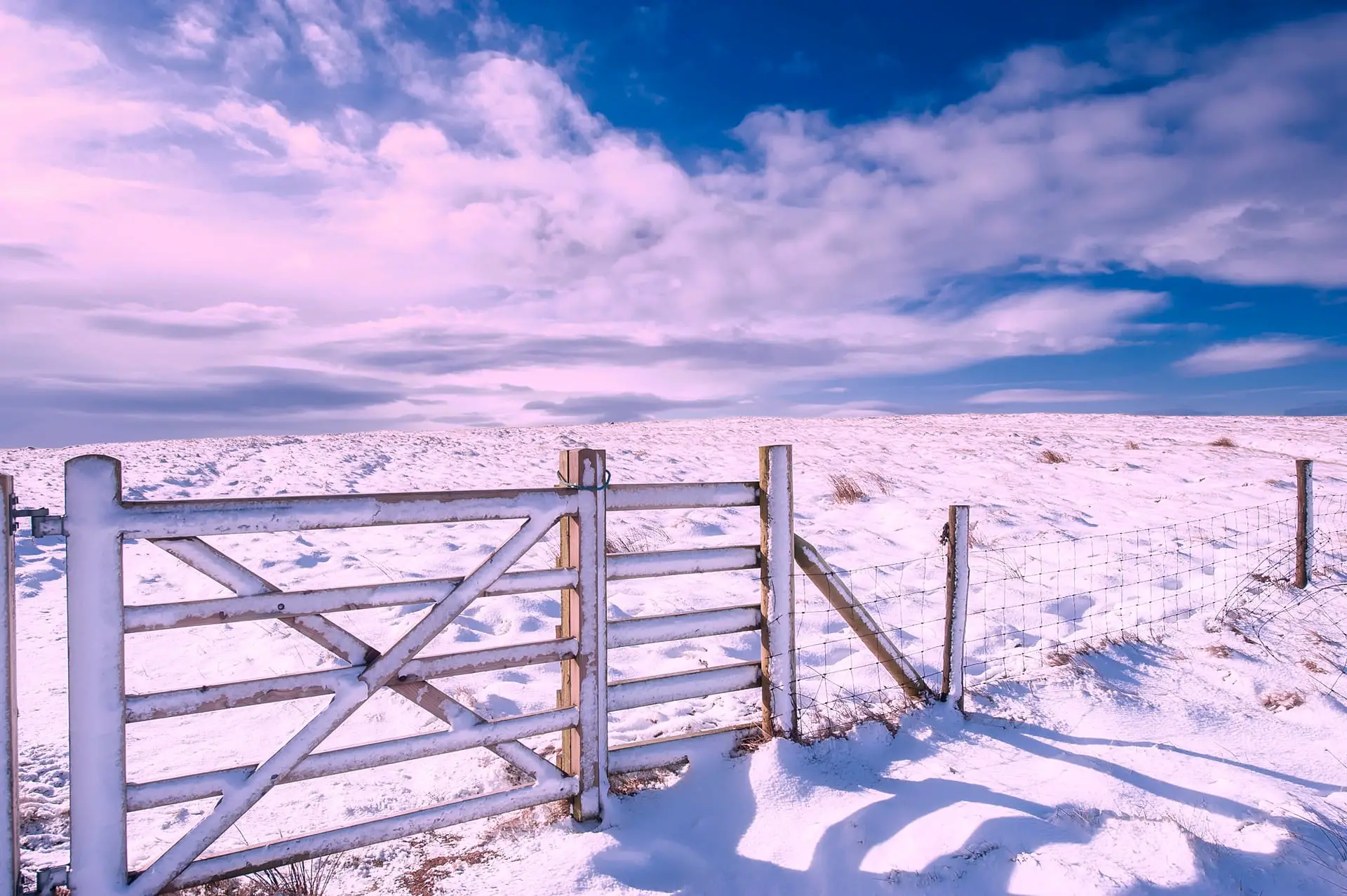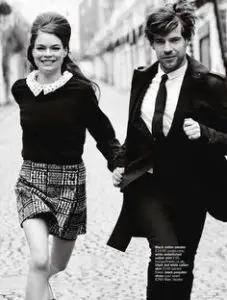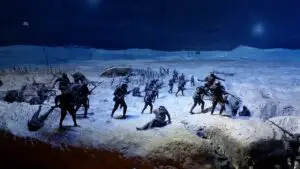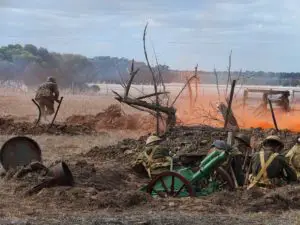
FULL POEM - SCROLL DOWN FOR LINE-BY-LINE ANALYSIS
In February, digging his garden, planting potatoes,
he saw the first lapwings return and came
indoors to write to me, his knuckles singing
as they reddened in the warmth.
It’s not romance, simply how things are.
You out there, in the cold, seeing the seasons
turning, me with my heartful of headlines
feeding words onto a blank screen.
Is your life more real because you dig and sow?
You wouldn’t say so, breaking ice on a waterbutt,
clearing a path through snow. Still, it’s you
who sends me word of that other world
pouring air and light into an envelope. So that
at night, watching the same news in different houses
our souls tap out messages across the icy miles.

LINE-BY-LINE ANALYSIS
STANZA 1
In February, digging his garden, planting potatoes,
he saw the first lapwings return and came
In these first two lines of the opening stanza, the speaker gives the reader an insight into the life of the man, perhaps a friend or family member, who is writing to her. The language here makes it evident that he has an active lifestyle (through the use of the active verbs ‘digging’ and ‘planting’), working on the land where he is surrounded by, and connected to, nature – observing first-hand the return of the ‘first lapwings’ (a type of bird) after flying southwards for winter.
indoors to write to me, his knuckles singing
‘His knuckles singing’ is personification which portrays his excitement to write to the speaker and the joy with which he writes. The tone of the poem is upbeat given by language choices such as this and the allusion to spring – a hopeful season, characterised by new-life and regeneration.
STANZA 2
as they reddened in the warmth.
It’s not romance, simply how things are.
Having come inside, the man’s hands start to warm up and redden as the blood volume flowing to them rises again. The image of the colour red can be used to symbolise passion, either by means of love or anger depending on the context, but the speaker acknowledges this and shuts it down. She says ‘it’s not romance, simply how things are,’ a matter of fact, prosaic statement that demonstrates that the speaker may romanticise the life that the man leads, but not the man himself.
You out there, in the cold, seeing the seasons
In the first part of the line, ‘you out there, in the cold,’ Dooley uses monosyllabic words to portray the simple, routine and repetitive life of the man – quite an uninspiring outlook. However, it juxtaposes with the second part, ‘seeing the seasons’, whereby the polysyllabic and alliterative words, ‘seeing’ and ‘seasons’ reflect a more romantic interpretation of his lifestyle – one where he is in harmony with the natural world.
STANZA 3
turning, me with my heartful of headlines
feeding words onto a blank screen.
The enjambement from the last line of the previous stanza to this line creates a natural continuity in the flow of the poem that mirrors the progression of the seasons. The alliterative phrase ‘heartful of headlines’ is an allusion to the work of the speaker, suggesting that she is a journalist working for a newspaper. Consequently, it emphasises the disparity in their working lives – he’s outside ‘seeing the seasons’, whilst she’s inside with a ‘heartful of headlines…feeding words onto a blank screen’. The latter phrase depicts her work as a thankless task – she’s missing out on so much of the real world by spending much of her time staring at ‘a blank screen’.
Is your life more real because you dig and sow?
The speaker’s reflection upon her own work in comparison to his, prompts the rhetorical question, ‘is your life more real because you dig and sow?’ In other words, is he living a richer, fuller life due to the nature of his work, which sees him being outside and closer to nature more often than her modern, city job allows? Is she, consequently, wasting her life away prioritising income over life experiences? The speaker is unsure, and it is a question posed to the reader (intended for them to ponder) as much as it is to the man.
STANZA 4
You wouldn’t say so, breaking ice on a waterbutt,
clearing a path through snow. Still, it’s you
The speaker predicts that the man would say otherwise, reminding her of the hard physical labour and tasks that also seem thankless such as ‘breaking ice on a waterbutt’ associated with the work that he undertakes. Yes, he may be closer to nature (illustrated by the speaker’s romanticised interpretation of his work in the first stanza) than her, but, whilst she’s inside in the comforts of her own home, he’s suffering in the elements (an insight to his work given in this stanza).
who sends me word of that other world
The speaker refers to his lifestyle as an ‘other world’ to her own is a metaphor describing their respective lifestyles as alien to one another, as though they come from different planets. This emphasises the vast disparity in their day-to-day lives and careers.
STANZA 5
pouring air and light into an envelope. So that
The metaphor, ‘pouring air and light into an envelope’ represents how the man’s letters offer the speaker an insight into the man’s way of life in Yorkshire (as though she was there with him breathing in the Yorkshire ‘air’) and the joy (symbolised by the ‘light’) that she gains from reading them.
at night, watching the same news in different houses,
our souls tap out messages across the icy miles.
Despite their physical separation ‘in different houses…across the icy miles’ of England in February, emotionally and spiritually they are close and connected, sharing a bond formed and nurtured by the letters which they share – offering a comforting resolution to the poem.


